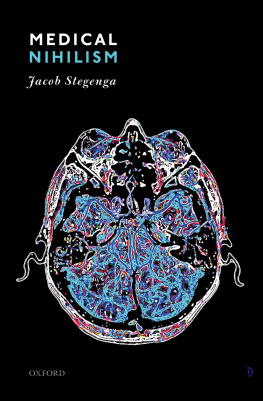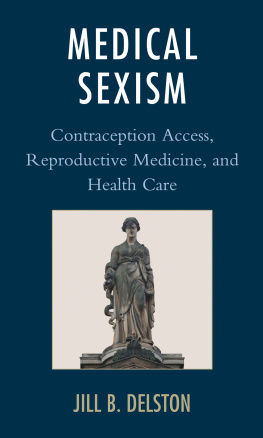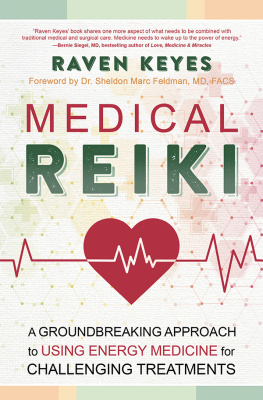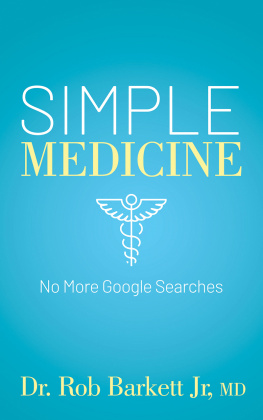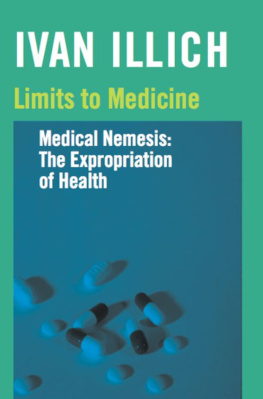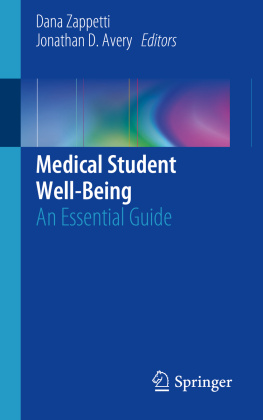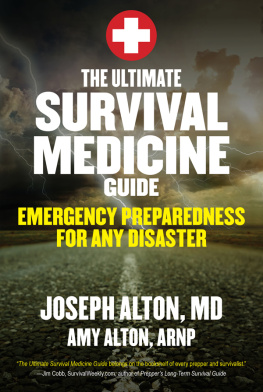Oxford University Press is a department of the University of Oxford. It furthers the Universitys objective of excellence in research, scholarship, and education by publishing worldwide. Oxford is a registered trade mark of Oxford University Press in the UK and in certain other countries
All rights reserved. No part of this publication may be reproduced, stored in a retrieval system, or transmitted, in any form or by any means, without the prior permission in writing of Oxford University Press, or as expressly permitted by law, by licence or under terms agreed with the appropriate reprographics rights organization. Enquiries concerning reproduction outside the scope of the above should be sent to the Rights Department, Oxford University Press, at the address above
You must not circulate this work in any other form and you must impose this same condition on any acquirer
Published in the United States of America by Oxford University Press 198 Madison Avenue, New York, NY 10016, United States of America
Links to third party websites are provided by Oxford in good faith and for information only. Oxford disclaims any responsibility for the materials contained in any third party website referenced in this work.
Nancy Cartwright has had the most pronounced influence on this bookthe rigor of her own work has been a constant spur, and her pastoral care has fostered this book in countless inarticulable ways. Denis Walsh helped to provide the time and the confidence to begin writing. I am grateful to Alex Broadbent, Jonathan Fuller, Mal Lemoine, and Anna Vaughn for their close reading, questions, and criticisms of draft versions of large parts of this manuscript at various stages of development.
Many people have offered valuable commentary and discussion on particular chapters. For this I am grateful to Anna Alexandrova, Hanne Andersen, Richard Ashcroft, Peggy Battin, Ken Bond, Frdric Bouchard, Craig Callender, Martin Carrier, Nancy Cartwright, Hasok Chang, Rachel Cooper, Heather Douglas, Marc Ereshefsky, Martyn Evans, Luis Flores, Leslie Francis, Fermin Fulda, James Gardner, Beatrice Golomb, Sara Green, Marta Halina, Jon Hodge, Bennett Holman, Jeremy Howick, Philippe Huneman, Phyllis Illari, Stephen John, Saana Jukola, Aaron Kenna, Brent Kious, James Krueger, Adam La Caze, Eric Martin, Leah McClimans, Boaz Miller, Elijah Millgram, David Moher, Peter Momtchiloff, Robert Northcott, Rune Nyrup, Barbara Osimani, Wendy Parker, Anya Plutynski, Dasha Pruss, Gregory Radick, Isaac Record, Federica Russo, Simon Schaffer, Samuel Schindler, Jonah Schupbach, Miriam Solomon, Jan Sprenger, Georg Starke, Veronica Strang, James Tabery, Eran Tal, Mariam Thalos, Aleksandra Traykova, Jonathan Tsou, Denis Walsh, Sarah Wieten, Torsten Wilholt, John Worrall, and Alison Wylie. I am also grateful to audiences at numerous universities and conferences. A risk of having so many interlocutors over so many years is that I am liable to forget to thank all of them here. I am truly sorry if I have done so.
Dr. Brent Kious (psychiatry) participated in one of my philosophy of medicine seminars, and Dr. Benjamin Lewis (psychiatry) allowed me to shadow his clinical work with patients at the University of Utah Neuropsychiatric Institute. Dr. Beatrice Golomb (internal medicine) introduced me to some of the problems of assessing harms of medical interventions. Dr. Dick Zoutman (infectious diseases) first emphasized to me the practical difficulty of amalgamating diverse evidence. Dr. Luis Flores (psychiatry), health policy analyst Ken Bond, and epidemiologist David Moher provided written commentary on particular chapters. I am grateful to Dr. Samuel Brown (intensive care), Dr. Howard Mann (radiology), Dr. Jeffrey Botkin (pediatrics and research ethics), and Dr. Willard Dere (personalized medicine) for valuable discussion on several general themes from the book.
Parts of this book have appeared in previous publications. A version of , and the technical material in the appendices are new.
I began this book while I was a Fellow of the Banting Postdoctoral Fellowships Program, administered by the Government of Canada, and held at the Institute for the History and Philosophy of Science and Technology at the University of Toronto. I am grateful for this generous support. It is a nice historical accident that my research for those two years was supported by a program named after Frederick Banting, the scientist who discovered the biological basis of, and effective treatment for, type 1 diabetes. Bantings great achievement, which saved so many lives and mitigated profound suffering, has raised my standard for what we can hope for from medicine, and I use this standard in the arguments that follow.
I wrote most of this book while at University of Utah, University of Victoria, and then University of Cambridgethese institutions provided generous time for me to devote to writing. I made the final touches during a fellowship at the Institute of Advanced Study in Durham University. This idyllic setting of riverside paths, medieval stone roads, and wooded trails was conducive to testing a claim made by Hippocrates, an early medical nihilist and the symbolic parent of western medicine: walking is our best medicine.
A book about medical research written by a philosopher of science necessarily relies on technical jargon from both medicine and philosophy. I try to explain such terminology where appropriate.
When referring to pharmaceuticals I usually use their scientific names and in parentheses I note their trade names. The latter are usually more familiar. Many drugs have multiple trade names but I usually list only one.
Occasionally I employ simple notation from probability theory, in which P(X) means the probability of X and P(X|Y) means the probability of X given Y. For example, P(rain today) = 0.6 means the probability of rain today is 0.6, or there is a 60% chance that it will rain today, and P(rain today|Im in Seattle) = 0.8 means given that Im in Seattle, the probability of rain today is 80%.
I use the following abbreviations.
| ADHD | attention deficit hyperactivity disorder |
| BMJ | British Medical Journal (former name, now just referred to as BMJ) |
| CDER | Center for Drug Evaluation and Research |
| CML | chronic myelogenous leukemia |
| DSM | Diagnostic and Statistical Manual of Mental Disorders |
| EBM | evidence-based medicine |
| EMA | European Medicines Agency |
| FDA | Food and Drug Administration |
| HAMD | Hamilton Rating Scale for Depression |
| NHLBI | National Heart, Lung, and Blood Institute |
| NICE | National Institute for Clinical Excellence |
| NIH | National Institutes of Health |
| NIMH | National Institute of Mental Health |
| NNT | number needed to treat |
| PPAR |

